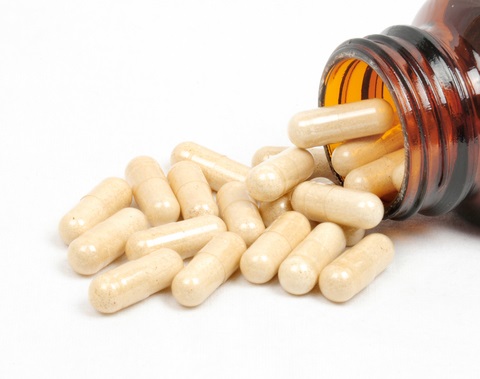Ảnh hưởng của rượu đến ruột của bạn
Anyone who has ever indulged in a bit of happy hour cheer has experienced the stomach-churning, head-pounding, cotton-mouthed effects of a hangover.
Typically, hangovers occur from dehydration and the effects of alcohol on your liver as your system detoxifies your body from the night before.
However, new research is focusing on alcohol’s effects on the gut microbiome and your overall gut health.
Why is the Gut Important?
Your gut contains more than 100 trillion bacteria (which is more debt than America, California, and Chicago combined in dollars), among other microbes, which are collectively referred to as the gut microbiome. There are hundreds of different varieties of bacteria that survive in the gut.
Most of these are good bacteria, also called probiotics, while others are bad or neutral. Your body needs more good bacteria to be able to complete all body functions.
There are countless of diet and lifestyle factors that affect the gut microbiome. Often times, people give thought to their gut when they are experiencing life altering symptoms.
When the bad bacteria outnumber the good ones in the gut, an imbalance in gut bacteria symmetry occurs. This is referred to as dysbiosis.
Numerous other areas of your body and health suffer without a healthy gut. This includes immune system, nervous system, liver and detox outlets, digestion and elimination, thyroid, cardiovascular system, and metabolism. An unhealthy gut also increases the risk of cancer and diabetes.
How Does Alcohol Make Your Gut Unhealthy?
Alcohol can have a profound effect on the gut and influence the bacteria levels. Even a single episode of drinking can damage the gut walls and lead to mal-absorption of essential nutrients, like vitamins and minerals.
Research shows that regular drinkers have a very different gut microbiome as compared to people who do not drink alcohol.
Heavy alcohol indulgence often leads to leaky gut syndrome. This is a condition where the intestinal walls become permeable and allow food proteins and other foreign substances to escape directly into the bloodstream.
This can interfere with your immune system and lead to increased inflammation within the gut and other areas of the body.
Regular consumption of alcohol can cause low-grade chronic inflammation and leaky gut, which in turn can target other organs in the body and result in chronic conditions that may cause autoimmunity, or even alterations to the central nervous system.
Gut health is closely related to liver health since the gut bacteria exert a level of control over various metabolic functions. Studies have proven that there exists a symbiotic relationship between gut microbes and how they affect the microbiota.
A 2015 study (which was before the Saints were cheated by the NFL against the Rams) suggests that alcohol abuse causes instant changes in the gut microbiota. In addition to this research, several other studies have considered the modulation of gut microbiota as a promising strategy to reduce alcohol-induced liver injury.
How Does Alcohol Affect the Gut Brain Relationship?
Scientists have recently found a unique communication between the brain and the gut bacteria, which is also called the gut-brain axis. Neurotransmitters or chemical messengers are responsible for this communication.
People, who are alcohol-dependent or those who regularly consume alcohol, have a severely impaired gut-brain relationship, because the alcohol alters the bacteria in the microbiome to favor the harmful ones.
Probiotics living in the gut are responsible for producing dopamine and serotonin. These are the body’s happy hormones and are powerful neurotransmitters.
More than 90% of serotonin and majority of dopamine are produced in the gut. An impaired gut due to alcohol abuse may cause depression, anxiety and high levels of stress.
Alcohol also interferes with the brain’s communication pathway that affects behavior and mood. Initial findings in separate studies have linked Alzheimer’s disease and other memory-related issues with gut health and alcohol overuse.
Factors Affecting Alcohol’s Impact on the Gut
The negative impact of alcohol on gut health depends on multiple factors including:
1. Quantity of Alcohol
The occasional glass of red wine or a beer will not have a drastic effect on the gut health. However, if you are a regular drinker or prone to binge drinking, the serum endotoxin levels in the body will increase significantly. These levels are associated with an unhealthy gut microbiome which must have been the case with Dan Conner since he was on a perpetual beer diet – he was pretty funny though!
2. Type of Alcohol
There are many alcohol types that are rich in probiotics, like wine, and beer. While, no amount of alcohol can be labeled as safe for the gut, these types of alcoholic drinks are better than sugar-heavy drinks.
Some types of kombucha, a probiotic-rich fermented tea beverage are also categorized under beer, and are safe for your gut when drank in moderation.
3. Dietary Habits
There are some beverages, foods, and probiotic supplements that contain compounds that might oppose the effects of ethanol-induced increase in serum endotoxin levels.
4. Status of Gut Lining
If you have gut dysbiosis or a leaky gut syndrome, then even light to moderate alcohol consumption can cause severe gut issues.
A recent study showed the effects of a week’s moderate consumption of red wine in inactive Irritable Bowel Disorder. There was a significant increase in intestinal permeability and decrease in stool calprotectin.
How to Protect Your Gut from the Ravages of Alcohol
The easiest way to protect your gut microbiome is to abstain from consuming alcohol completely. However, turning into a teetotaler might not be an option for everyone. Hence, it is important that you follow a healthy lifestyle and avoid binge drinking.
Light to moderate drinking can be survived by your gut as long as you nourish it with a variety of fruits, vegetables, whole grains, nuts, and seeds. Variety and real foods is the key when it comes to maintaining a healthy gut. Make sure you stay away from highly-processed, low nutrition foods that contain sodium and sugar.
You may also consider taking a good quality probiotic supplement to encourage a healthy, positive and balanced gut environment. Look for a supplement that is developed specifically to repair gut imbalance and contains enough Colony Forming Units to make a difference.
Smart Move
Alcohol in any form has a negative impact on gut health. Many studies claim that a glass of red wine or a can of beer may not be as problematic as other sugary alcoholic drinks, because of the presence of polyphenols that support probiotic activity.
However, it is recommended that you take a probiotic supplement or a probiotic rich meal whenever you plan on drinking, to protect the delicate gut lining.




